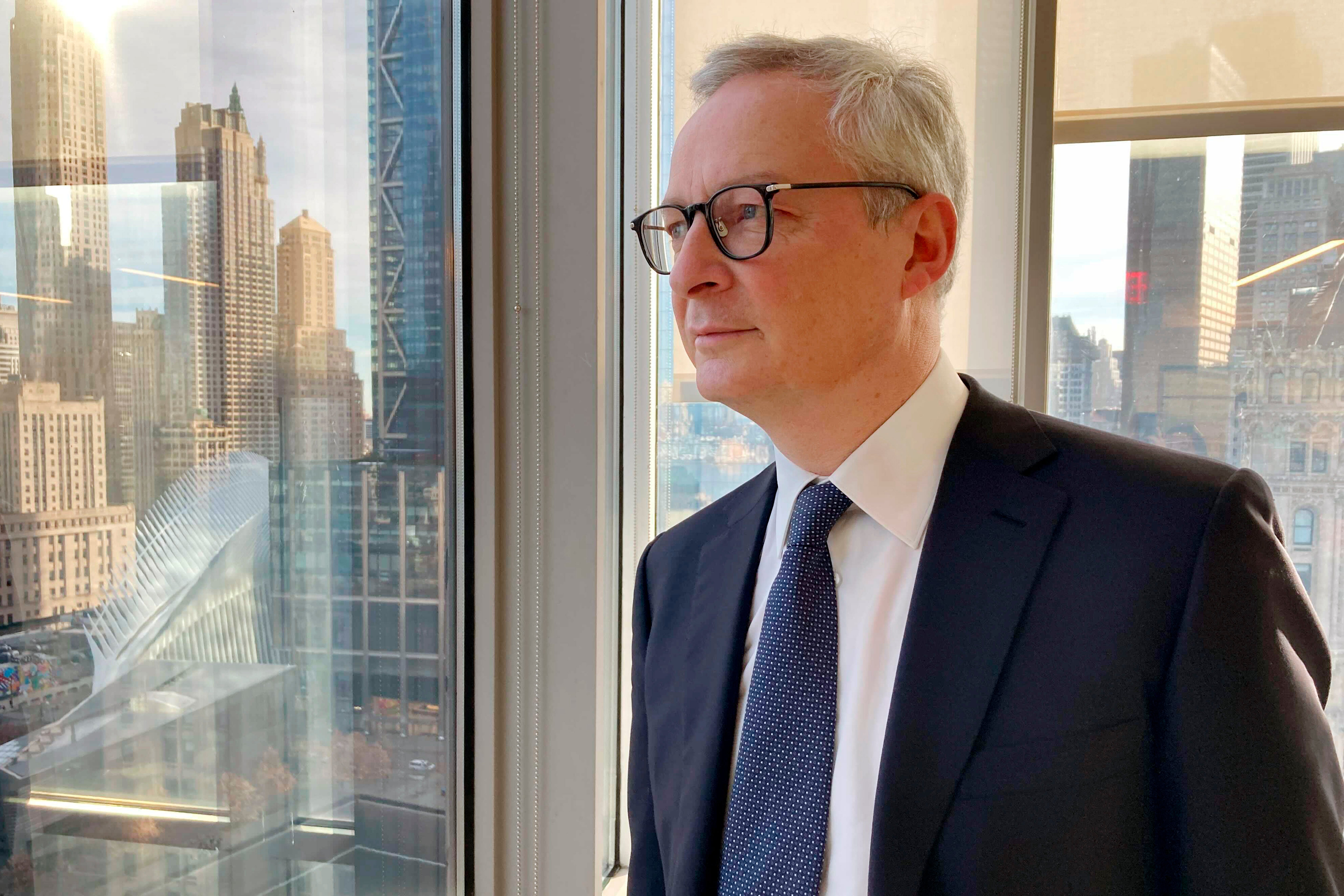French minister says Macron's reelection would boost growth
French Finance Minister Bruno Le Maire says President Emmanuel Macron’s potential reelection next year is “very important” to further boost growth — in a clear endorsement of a candidacy that’s not yet been formally announced

Your support helps us to tell the story
From reproductive rights to climate change to Big Tech, The Independent is on the ground when the story is developing. Whether it's investigating the financials of Elon Musk's pro-Trump PAC or producing our latest documentary, 'The A Word', which shines a light on the American women fighting for reproductive rights, we know how important it is to parse out the facts from the messaging.
At such a critical moment in US history, we need reporters on the ground. Your donation allows us to keep sending journalists to speak to both sides of the story.
The Independent is trusted by Americans across the entire political spectrum. And unlike many other quality news outlets, we choose not to lock Americans out of our reporting and analysis with paywalls. We believe quality journalism should be available to everyone, paid for by those who can afford it.
Your support makes all the difference.French Finance Minister Bruno Le Maire says President Emmanuel Macron’s potential reelection next year is “very important” to further boost growth — in a clear endorsement of a candidacy that's not yet been formally announced.
Macron is widely expected to seek a second term in the presidential election scheduled for April, but hasn’t officially revealed his intentions.
In an interview with the Associated Press Friday during a two-day visit to the United States Le Maire said: “I think it's very important that Emmanuel Macron is reelected. I think our country needs consistency and stability."
Polls for months have shown Macron, a pro-business centrist, to be the front-runner in next year’s presidential election, where he's set to face major contenders from the right and the far-right.
“We must have a democratic, serene debate with (far-right candidate) Eric Zemmour, with other far-right leaders, to say: 'Your vision of France is not my vision of France,'” Le Maire said, noting that boosting growth is one response to the concerns expressed by the French.
Since Macron's election in May 2017, “we had some successes, we also had some failures,” Le Maire said. “We failed to implement the pension reform. That’s a regret because it was needed. We were not able to do it. We’ll do it in the next term.”
Protracted, intense street protests and the COVID-19 pandemic led Macron to delay the difficult overhauling of France’s pension system, which had been a key campaign promise.
“When you look at (Macron's) five-year term ... France is in the right direction, it is on the path to success,” Le Maire added, noting that the French government passed measures to make the labor market more flexible, and cut taxes on businesses.
“This is a key point I want to tell all investors: France has become the most attractive country in Europe,” he insisted.
France has scheduled to further cut its corporate tax from over 33% five years ago to 25% next year, he said. “So I’m telling all American entrepreneurs: come to France, this is the place to be.”
In a long interview broadcast on national television on Wednesday, Macron said France has a “much stronger economy” despite going through the COVID-19 crisis. France’s unemployment rate is at 8.1%, down from about 10% when he was elected, according to national statistics agency INSEE.
INSEE estimated the French economy would grow 6.7% this year, the highest rate since 1969.
Asked about French views about how to face global competition from China Le Maire said “we are all aware that the rise of China is a major concern ... Then you have to define your strategy. Either to confront China — this is the American choice — or to engage with China. This is the French, and, I would say, the European choice.”
“For the biggest challenges of the 21st century you need China," he said, also citing a new global taxation system, global agreement on reduction of debt for poor countries, and US-China agreement on fighting climate change.
Macron last week said he does not support a diplomatic boycott of the 2022 Beijing Winter Olympic Games, in contrast with the U.S., Canada and U.K. which made the decision to protest human rights abuses in China.
“There are important problems related to human rights” in China, Le Maire acknowledged. “Our strategy is to divide the problems and to talk to China in a very frank manner.”
“We are talking to China on human rights, we are talking on trade, we are talking about intellectual property, about access to markets about technological issues," he listed. “I think a step by step approach ... is the best one to get some very concrete results.”
___
Corbet contributed from Paris.